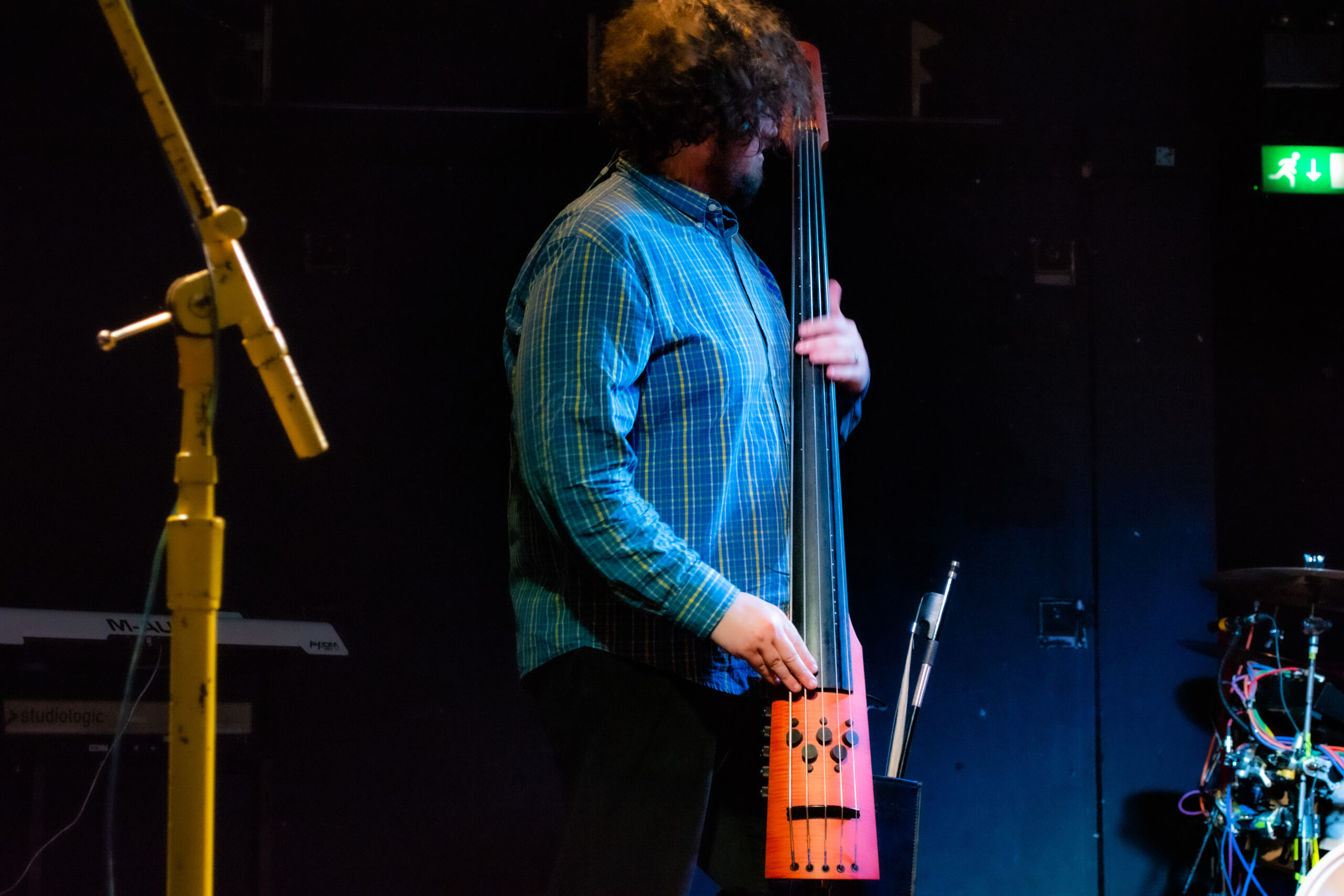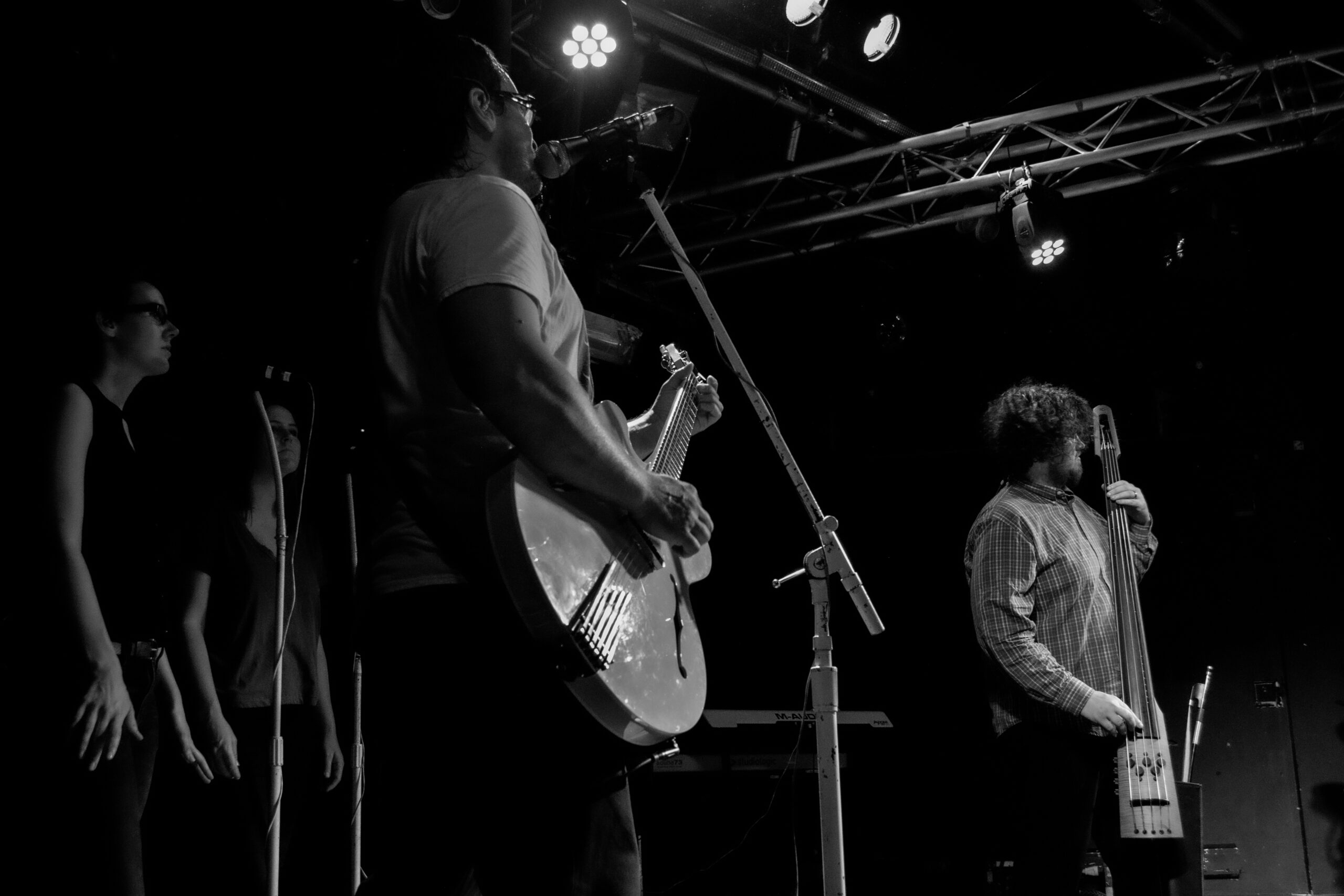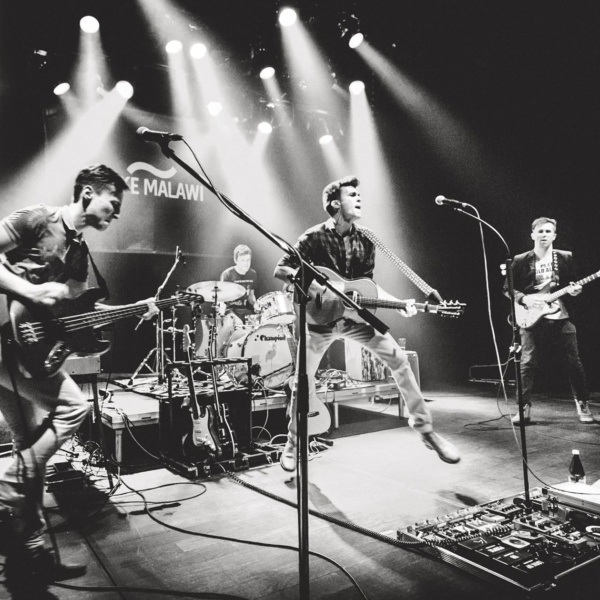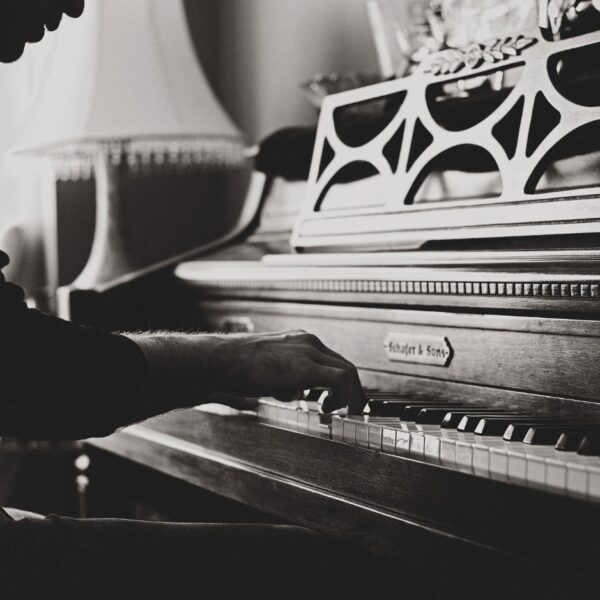Wheatus are celebrating their 20th anniversary as a band, so I took the opportunity to catch up with Matthew Milligan, bassist for Wheatus, hot on the heels of their release of a new version of Teenage Dirtbag.
Hammy Havoc: Tell our audience about playing through the Weezer discography live on Twitch!
Matthew Milligan: Just before NYC went into lockdown, I recorded a cover of Undone with my friend Luke Buck, which was super fun and led to me spinning the first two Weezer records for the first time in years. When I was a teenager, I learned how to play bass along to their music, and I know a lot of musicians my age (mid-30s) who put Weezer on a similar pedestal…but it didn’t seem like anyone kept up with them over the last 15 years or so. Something about that absolutely fascinated me, which led to the idea of learning how to play their entire discography. It was about paying tribute to the albums that shaped my early years as a musician while also taking a closer look at records that I might have overlooked. Turning it into a marathon livestream made it a personal challenge as well as an opportunity to perform again. And, of course, I knew that the concept of “Wheatus bassist covers Weezer discography” was just inherently funny.
Pulling the whole thing off was more stressful than I anticipated, but that was largely due to my lack of experience with livestreaming technology. Once I figured that stuff out, the 10 ½ hour process of playing all the music was really satisfying. I had a lot of people who stuck with me the whole day and it turned into a delirious celebration.
HH: We were discussing the other day about how prior to Twitch, you had been streaming out on YouTube, but had problems with audio fingerprinting. Can you tell our readers a little more about that?
MM: I was playing through the Weezer catalog on YouTube live, and I got about halfway through Pinkerton (their 2nd album) when I got a notice from YouTube that the stream had been stopped because they detected copyrighted material. Based on past experience, I thought YouTube would automatically direct any streaming revenue to the copyright holder and prevent me from monetizing the stream after I finished, and I was fine with that. But it turns out they err on the side of caution with livestreaming and just automatically block anything they think might be problematic. The irony was that I had gotten Weezer’s attention and they had started to promote the livestream on their social media channels. Both Rivers and Scott (their bassist) gave me a shout-out, which was an honor! But despite the band being into it, there was no way to stop YouTube from blocking the stream. So, I abandoned ship that day, moved the event to Twitch, and successfully completed the project 4 days later. You can check out the highlight reel here.
HH: How would you like to see intellectual property handled in the future by streaming platforms in terms of responsible and ethical use of songs?
MM: It’s a tricky thing, you know? A few years ago, artists didn’t get anything from having their intellectual property used on sites like YouTube, so it’s nice that these services are at least trying to get artists compensation for their work. But now, an artist could actually want their content featured somewhere, only to have it blocked by a content ID algorithm with no easy workaround. The one thing that both of these scenarios have in common is that the artist in question often has very little control in how their work is used, and that’s the big part of this equation that needs to be addressed, I think.
HH: Are you planning any further streams and/or play-throughs of whole discographies?
MM: I would love to! This came up in the Twitch chat as I was playing the Weezer discography. Someone suggested Green Day and someone else suggested The Beatles. Both of those sound fun to me. I also thought it might be wild to try and play “Weird Al” Yankovic’s discography… talk about a musical challenge! I’m still recovering from the Weezer process, but future planning will begin soon. For the time being, it looks like I’ll keep doing these on Twitch, so you can follow me on there.
HH: Now that you’ve streamed out bass playing, have you tried collaborating over the internet, live?
MM: Not yet, but that’s really something I should look into more closely. I’ve been doing a bunch of different recorded collaborations which have been fun, but have yet to attempt doing anything in real time.
HH: Are you currently isolating?
MM: Yep… NYC has been pretty much shut down since mid-March.
HH: How are you and Joey holding up?
MM: We’re hanging in there! We live in Astoria, NY, which has been one of the most hard-hit neighborhoods in the country, so we’re being super cautious. But we’re both healthy and have still been able to work and be creative from home, so I’m very grateful for that.
HH: What are you missing the most about relative “normality” since isolating?
MM: Probably going to the cinema… I used to do that at least once a week. It was my favorite way to clear my head and unwind. I miss it.
HH: How has COVID-19 affected you personally?
MM: The intense uncertainty of future touring has been scary. I had a few tour windows held for this year, most notably Wheatus, who were scheduled to tour pretty much the entire 2nd half of 2020. While not all of those plans are officially off the table, it’s looking more likely every day that we’ll pretty much just have to move everything to next year instead. Obviously, public health is the most important thing, but both creatively and financially, that’s been a tough thing to wrap my head around.
HH: How has COVID-19 affected your local music scene?
MM: Well, currently gigs in NYC are prohibited and it looks like it’ll stay that way for some time, so that’s a drag. But there’s been more creative collaborations between artists than I have ever seen. I’ve started two brand new projects, done recordings from home for multiple artists/friends, and been working on my own original music for the first time in years. Oh, and I still found time to learn 150 Weezer songs! For all of the darkness in the world right now, my hope is that this will yield a golden age for the arts.
HH: With COVID-19, now seems like a great time for someone to learn to play an instrument. Any advice for aspiring bassists?
MM: Dive right in! Bass is easy to get started with… You’ll be able to play Smells Like Teen Spirit within an hour of your first lesson. Then just try and play along with whatever music you love. The more songs you learn, the more you’ll understand how music works. You can look up tabs online for help, but try your best to learn by ear. This will be really hard at first, but learning how to train your ear this way is one of the most practical skills you can have as a musician.
HH: How long have you been playing bass? How did you learn? Teacher or self-taught?
MM: I started playing bass when I was 15. There was a local teacher in my town who I would see once a week for lessons. I did that until I was about 18… Haven’t taken a lesson since then. Though some days I do think it’d be fun to work with a teacher again!
HH: Was bass your first love? What caused you to choose bass? Any particular records or riffs?
MM: Bass was my first instrument, but sort of by chance. When I was getting into punk rock music in my teens, I thought I might want to learn guitar, but these kids in my high school told me I should get a bass instead because there were already too many guitarists in the school. That made sense to me, so I went to Guitar Center and bought myself a Fender Squier bass. When I told those same kids that I bought a bass like they suggested, they laughed at me! Told me that bass was the lamest instrument there was. So basically, I became a bass player because of a stupid high school prank. I know that’s kind of a sad story, but I’m actually so grateful to those kids for tricking me into picking the instrument that would change my life. I almost certainly wouldn’t be where I am today if I had bought an electric guitar instead of a bass.
HH: Can you play any other instruments? If not, is there anything else you would like to learn?
MM: I’ve done gigs and tours with other bands playing guitar, keyboards, and samplers/programming, most notably multiple tours with Mike Doughty where I performed entirely on an Ableton Push. But bass was my first real instrument so there’s nothing I’m “fluent” on quite like it. I love learning how to play new instruments… I’ve got a banjo and an accordion in my closet that I can sort of play but would love to get better at. And I’ve always thought it’d be super satisfying to learn how to play a woodwind like the saxophone.
HH: What has been the biggest revelation for you in terms of bass tone?
MM: Less is more! Especially with rock music, 90% of the time all you need is the right settings on your amp head and maybe a little bit of overdrive. Oh, and there are loads of great basses in the world… but if you’re gonna be a session player, a Fender Jazz or Precision bass will almost always get the job done right.
HH: What has been the biggest revelation for you in terms of technique?
MM: This is such a cliché line, but it’s so true that the origin of great tone comes from your fingers. If you’re digging in too hard or playing too gently, there’s no amp setting or pedal that can save you. Learning how to play dynamically can really set you apart.
HH: What five records have been in regular rotation lately for you?
MM: Fiona Apple, Fetch the Bolt Cutters; Charli XCX, How I’m Feeling Now; Dua Lipa, Future Nostalgia; Sloan, Navy Blues; 100 gecs, 1000 gecs.
HH: How do you typically consume your music?
MM: I own a lot of vinyl that I love to listen to when I’m home, so that’s been another positive element to isolation! But if I don’t own the record or I’m listening to something very new, it’s usually either a digital file on my computer or streaming via Apple Music.
HH: As a touring and recording musician, how would you like to see music streaming platforms such as Spotify support your career? Is there anything that you feel is missing in the current industry to be able to deliver products, records or performance to your audience?
MM: Well, the standard line here is that it would be great if royalties were a bit higher. It’s still near-impossible to earn enough income to make a living on Spotify. However, I have to say that streaming services have done a great job of offering additional resources like ticket pre-sales and merch offerings to fans of artists. With how noisy the internet is nowadays, making sure your fans know what you’re offering and when you’ll be in town is both extremely important and surprisingly difficult. If Spotify can continue helping to make that happen, I’m all for it.
HH: As a fellow music geek, do you feel that streaming platforms need to expand to include more metadata like traditional liner notes on a record? That way you would be able to find common personnel between records and see what else people have worked on.
MM: Absolutely… I love getting accompanying content. A modern variation has been popping up on Spotify where some new songs have little animations/lyric snippets that appear on screen as the song plays, which I love. But, yeah, a way to easily access credits/personnel would be super helpful too.
HH: Speaking of music streaming, Wheatus has a new record out, M (Live in America). Can you tell our readers about that?
MM: Wheatus toured the USA in early 2019, opening for Mike Doughty (who I also play for). It was our first full band coast-to-coast tour of America since 2006! We focused on some of our later, lesser-known material on that run, and it was a really fun challenge for us to mix up our setlists so much. As the NYC lockdown was beginning, I revisited some of the audio from that tour (which our sound engineer Tom Benson captured for us beautifully) and I couldn’t believe how great we sounded. This was also just as Brendan was completing the re-recording of Teenage Dirtbag, so the idea of putting out a live record that highlighted the band’s later years felt like the perfect compliment. We also got to feature ourselves doing covers of Rush and The Tragically Hip… two very different but super influential bands for us that played a huge part in what became the “Wheatus sound.” I mixed the whole thing myself (with some help and mastering from Brendan) and we put it out there. The response has been wonderful.
HH: So, go on, I have to ask, obviously the ‘M’ in the artwork is an inverted ‘W’ of the Wheatus logo, but what does ‘M’ stand for?
MM: Haha, I’m sure you won’t be surprised to hear that we’re not saying exactly what the name means. I will say that the name/artwork/presentation is all a very specific reference to the album’s origin, and it’s entirely possible that someone out there could figure it out. But so far no one has.
HH: It’s been a little while since The Valentine LP. How is the seventh Wheatus studio album coming along?
MM: Slowly. Wheatus has always worked slowly when it comes to new music but this is slow, even by our standards. We shifted gears for a long time to focus on the 20th anniversary re-release of the debut album this year. Once that’s done, especially if we’re unable to tour as expected, perhaps we’ll be in a position to finish it later this year? I recorded bass on 8 songs already, so there’s definitely a lot of work already done. But lots more to do, for sure.
HH: Are you currently working on any new music outside of Wheatus? Can we expect more material from The Ventura Project, considering you’re isolating with Joey?
MM: I’m working on so many things! I just released an EP with a new electronic music project called Fashion Bird Danger Danger that features me & my friend John Wlaysewski (who also plays in the band Late Cambrian). The Ventura Project are putting the finishing touches on a new single that will hopefully be out soon. I’ve recently recorded I. N. V. U. with Warm Body, a cover of A-ha’s Take On Me with Luke Buck, and worked with Simon Garrett, which I’m very excited about.
HH: It’s been lovely talking to you today. I really hope that the COVID-19 pandemic comes to a close soon and you guys can get back out on the road again. Thanks for taking the time to talk with me today. I really appreciate it.
MM: My pleasure. This was fun! As soon as it’s safe to hit the road again, that’s where you’ll find me.
You can stream M (Live in America) from all good streaming platforms such as Spotify, Apple Music and Amazon now. You can also follow Matthew on Twitch, Twitter, Facebook & Instagram.
Image Credits: Hammy Havoc






Like this article? Share with your friends!